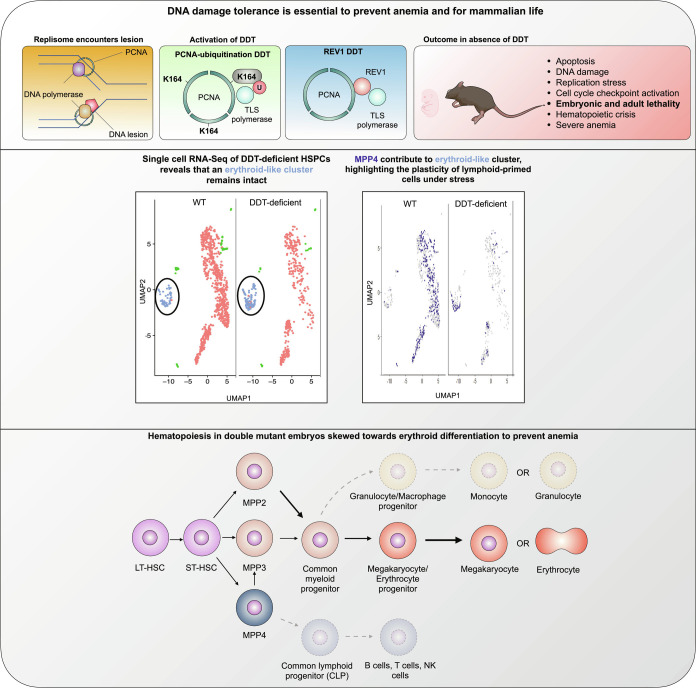Fig. 6.
Prolonging hematopoiesis in the absence of DDT: MPP4s support erythropoiesis. Upper: Inactivation of DDT through the inactivation of TLS recruitment by PCNA-Ub and REV1 causes replication stress, accumulation of DNA damage, cell checkpoint activation, and apoptosis in the hematopoietic system. Ultimately, these mutations lead to the development of lethal anemia in both, mouse embryos and adult mice. Middle: The hematopoietic crises caused by the lack of DDT reveals the persistence of an erythroid-like cluster, while other clusters are reduced. The persistence of this cluster appears to depend on the plasticity of MMP4, that are normally lymphoid committed. Lower: Proposed model of stressed hematopoiesis in DDT-deficient mice. Hematopoietic crises seen in double-mutant mice causes MPP4, normally committed to the lymphoid lineage cells, to differentiate toward erythroid-like progenitors. This plasticity ensures a prolonged erythroid output when canonical erythroid precursors are depleted as a consequence of genomic instability.

